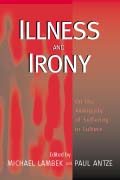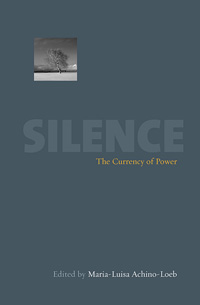
See Related
Anthropology JournalsEmail Newsletters
Sign up for our email newsletters to get customized updates on new Berghahn publications.
Illness and Irony
On the Ambiguity of Suffering in Culture
Edited by Michael Lambek and Paul Antze
160 pages, bibliog.
ISBN 978-1-57181-674-0 $29.95/£23.95 / Pb / Published (November 2003)
eISBN 978-1-80073-363-3 eBook
Reviews
"... this fine collection of essays ... offer[s] a more radical critique of anthropological practice than any one of their authors is likely to admit." · (From the Afterword by Vincent Crapanzano)
“…whether one considers the volume as a whole, or simply enjoys the insightful analyses provided by each of these (deceptively) brief essays, [this volume]offers a rich meditation on its subject matter.” · Ethnos
Description
Theories of illness and therapy since Freud have included the possibility that sufferers are complicit in their conditions. The studies in this volume explore the ways in which illness and therapy may be characterized as sites at which ironies of the human condition are produced, encountered, acknowledged – or discounted in favor of more literal readings. They ask what these sites can teach us about questions of human agency and about the broader importance of irony for theory.
Encompassing a variety of perspectives, the contributors included in Illness and Irony apply theories of irony to a myriad of cultural contexts, ranging from Freud’s consulting room and the Lacanian clinics of Buenos Aires to fright illness in a Yemeni village and spirit possession on the island of Mayotte. An introductory chapter by Michael Lambek establishes a contextual viewpoint on irony, arising from the writings of Thomas Mann, Alexander Nehamas and others. Vincent Crapanzano concludes the volume by linking the contributions to current debates about irony in rhetoric, linguistics and comparative literature.
Michael Lambek is Professor of Anthropology at the University of Toronto at Scarborough. He is the author of two books and numerous articles on the Malalgasy speakers of Mayotte, in the western Indian Ocean where he has conducted research since 1975. More recent work includes A Reader in the Anthropology of Religion. Together with Paul Antze he edited Tense Past: Cultural Essays in Trauma and Memory. Lambek is a Fellow of the Royal Society of Canada and president-elect of the Society for the Anthropology of Religion.
Paul Antze teaches in the Division of Social Science and in the Graduate Programs in Anthropology and Social and Political Thought at York University, Toronto. His research interests include psychoanalysis, the anthropology of memory, trauma and dissociation, and the anthropological study of therapeutic movements.




